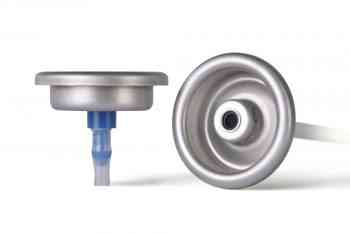What Storage And Handling Steps Keep Small Fuel Cans Safe In Transit

Portable fuel choices can be confusing: two packages that both say the same grams do not always mean the same real world performance. For example, a 100g Gas Cartridge placed into a stove and a 100g fuel canister used in another device may contain the same labeled mass but behave very differently when you light a burner, depending on valve type, thread standard, and the internal blend. Understanding those differences helps outdoor cooks, fleet buyers, and retailers set realistic expectations and avoid surprises on trips or jobs.
At the simplest level the difference starts with intended use and interface. One style is usually built to be the threaded, self sealing type that screws straight onto a stove head; the other is sometimes produced for alternative fittings or specific appliances. That matters because attachment geometry and valve design determine how easily a device seals, how securely it stays connected while cooking, and whether any additional adapters are needed. When connections are standardized it speeds setup and reduces the chance of a poor seal that wastes fuel or interrupts a meal.
Beyond the connector, internal behavior drives usable output. Fuel containers normally hold most of their contents as liquid under pressure with a small vapor space above. When the appliance draws gas that vapor forms and leaves as the working gas while liquid evaporates to replace it. The rate at which liquid turns to vapor depends on the formula and on temperature; colder conditions reduce vapor pressure and can limit how long a small can supply steady flow. This physical reality explains why two 100 gram packages may provide different boil times in chilly weather despite identical labels on a shelf.
Material, wall thickness, and production standards can also differentiate similar sized containers. Some are made and tested to meet recognized interface and safety norms which specify valve dimensions, pressure handling, and sealing performance. Products that reference these standards are designed to mate predictably with common appliance fittings and to provide consistent behavior in distribution and storage. For procurement teams and retailers, those specifications reduce uncertainty when matching fuels to a broad range of consumer or professional stoves.
Practical selection comes down to three user questions: will it connect without special adapters, will it provide steady flame for the tasks I do, and is it safe for the storage and transport conditions I face. To answer those, try a few simple checks at home: note how a fresh can performs on simmer and full boil, replicate a cooler ambient condition if you can, and see how the valve seals on your stove. These hands on tests translate grams into minutes of useful cooking and give a clearer sense of whether a pack of the same labeled items will meet expectations on the road.
Safety and logistics are practical differentiators often overlooked. Some can designs include thread patterns and valve protections meant to work with a wide array of mainstream stoves and to comply with transport rules. Others emphasize compactness for space conscious packing or specific manufacturing processes that ease recycling at end of life. For organizations buying in volume, suppliers that publish handling notes and testing regimes make planning storage, palletizing, and transport easier and reduce the risk of rejected shipments or on site mismatches.
Cost comparisons should factor in effective output not only labeled mass. If one format delivers more steady cooking time under your usual conditions then its cost per meal or per boil can be lower even if the sticker price is similar. Track how many full boils or full meals you get per can under the conditions you most often encounter and use that as the metric for comparison. That practical economics helps reduce waste and avoids overpacking partial cans.
For retailers and brands clear product notes make customers happier. Descriptions that state common appliance pairings, valve fittings, and expected behavior in cooler ambient conditions reduce returns and complaints. A supplier who documents testing and recommends staging — for example guidance on storage orientation and transit restraints — helps distributors prepare pallets and vans so cans arrive fit to use. That kind of transparency shortens onboarding for new buyers and simplifies training for service teams.
Finally, consider the whole use case before you buy. If your typical outing is short and light weight matters, a compact cartridge that screws on directly and stores cleanly may be the right choice. If you run high output burners, or you expect colder conditions where vaporization is slower, consider formats and blends that hold pressure better in those environments. Small field tests, clear supplier notes, and modest spares for critical legs make pack lists more reliable and meals more enjoyable. For product options and handling notes from a manufacturer that publishes specs and testing information visit the supplier portal below.
- Art
- Causes
- Crafts
- Dance
- Drinks
- Film
- Fitness
- Food
- Jeux
- Gardening
- Health
- Domicile
- Literature
- Music
- Networking
- Autre
- Party
- Religion
- Shopping
- Sports
- Theater
- Wellness



